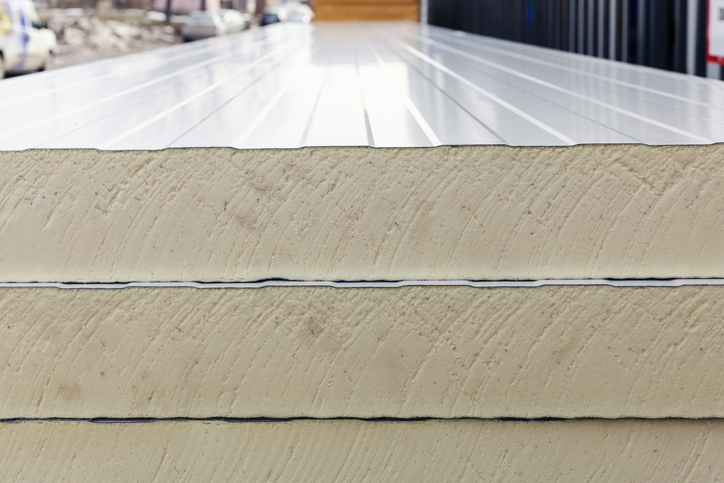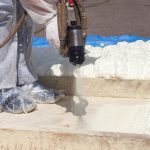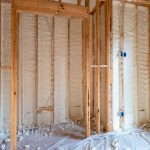Should You Choose Rigid or Flexible Polyurethane Foam Insulation?
Polyurethane, a versatile material with applications spanning numerous industries, presents a crucial decision point for users — choosing between polyurethane rigid foam insulation or its flexible counterpart.
The choice between these two forms is pivotal, as each possesses distinct characteristics that cater to specific needs. Here, we’ll help you understand the difference between these materials and guide you toward the right choice for your operation.
Polyurethane Rigid Foam Insulation vs. Flexible Counterparts
Polyurethane has numerous applications across countless industries. However, you must take into account what kind of polyurethane you’ll be using for your needs. Let’s dive into an overview of the main differences between flexible and rigid polyurethane foam insulation.
Rigid Foam Insulation Characteristics
Polyurethane rigid foam insulation has a solid and rigid structure that’s similar to hard plastic. It tends to have a higher density than flexible options, which can vary from low to high, depending on the formulation and production process. Lastly, it is less resilient and shock-absorbing than flexible options.
Flexible Foam Insulation Characteristics
Flexible polyurethane insulation has a soft and elastic structure, along with a lower density than its rigid counterpart. However, its elastic structure makes it ideal for applications that require shock absorption and comfort. Additionally, flexible polyurethanes are easier to work with than rigid options, as they have better flexibility in casting, spraying, or molding applications.
What’s Right for Your Application?
We’ve described the characteristics of both flexible and rigid foam insulation, but what does that mean for you? What’s right for your business? Here are some of the most common applications for both options:
Rigid Foam Insulation Applications
Polyurethane rigid foam insulation is commonly used for construction and building applications. Because of its high thermal resistance, lightweight nature, and ability to provide effective protection against heat, cold, and sound, it’s a popular choice for most businesses.
- Walls: rigid foam is often installed in walls to provide thermal insulation because it’s ideal for reducing heat transfer between the interior and exterior of a building.
- Roof, attic, and crawl spaces: builders often use this foam to prevent heat loss or gain through the building’s top surface. It also provides some protection against moisture in these spaces.
- Under-slab insulation: In some cases, rigid foam insulation can be installed beneath concrete slabs (such as basement floors) to provide thermal insulation and prevent heat loss to the ground.
These are just a few applications for this versatile product. Overall, it can be used in various ways to prevent heat transfer in buildings.
Flexible Foam Insulation Applications
Flexible insulation has a pliable and bendable nature, which allows it to be used in applications where rigid insulation is unsuitable.
- Pipe and ducts: flexible foam is often used to insulate pipes in residential, commercial, and industrial settings. Additionally, it’s employed to insulate air ducts and HVAC equipment to minimize energy losses as air travels through the ductwork.
- Automotive: this type of product is perfect for vehicles, as it provides thermal and acoustic insulation. It may be used in the interior cabin, door panels, floor and carpet padding, trunk, and more.
- Packaging materials: due to its flexibility and cushioning properties, flexible foam is used as a packaging material to protect fragile or sensitive items during shipping and handling.
It’s important to note that these are just some of the applications that flexible foam is used for. It’s commonly used in applications that require more pliability than rigid foam can offer.
Using Polyurethane Foam in Your Next Project? Trust Our Equipment
Linden Polyurethane is a leading manufacturer of custom polyurethane processing equipment for companies across the world. Founded in 1985, we have almost four decades of experience creating the highest-quality equipment in the industry. A privately held corporation, we’re now known as a world-class designer, engineer, manufacturer, and service provider for standard and custom equipment. This includes both processing apparatus and mix heads.
Over the last few decades, we’ve successfully pioneered many polyurethane innovations and refined the tools used by countless industries all over the globe. Today, we can design and manufacture all types of polyurethane metering, processing, distribution, and storage systems, as well as provide service and repair for equipment manufactured by other organizations. Additionally, we partner with some of the best organizations in the polyurethane industry to deliver the best products to our customers. These partners include Isotherm AG, Polytec EMC, and Feedall Automation.
When you need an expert in the polyurethane space, turn to us. Reach out to our team for more information.





